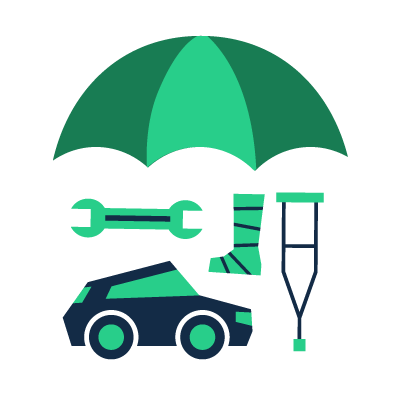Rev up your savings today. Get car insurance and protect yourself today!
Don't pay more for your car insurance than you have to. Compare quotes on Moneysmart and steer your savings in the right direction!
12 Ways To Save Costs On Car Insurance
Opt for the coverage that you truly need. While comprehensive coverage offers more protection, consider whether it's necessary based on your car's age and value.
Reducing car insurance costs in Singapore, like in many places, involves a combination of strategic choices and responsible driving behavior. Here are 10 tips to help you lower your car insurance premiums.
There are many free comparison tools which you can tap on such as MoneySmart’s Car Insurance page is a great place to start getting affordable quotes and comparing the best car insurance rates.
Although unexpected accidents are unavoidable at times, try not to get into those situations, as any traffic violations or road accidents may result in you having to pay higher premiums due to increased risk.
Enhance the security features in your car by fitting in anti-theft devices as these can reduce the risk of theft or damage, leading to potential discounts on your insurance.
Go for bundle policies if you have multiple insurance policies such as home and car insurances, you can consider bundling them with the same provider as you may get discounts.
Some car insurers do offer discounts or bonuses if you drive your car less frequently. If you're eligible, consider sharing your car usage details to avail of this discount.
While many car insurance policies provide protection for your car for a year, there are a couple of insurers like Aviva which offer two-year policies. However, you may be forgoing your chance of taking advantage of lower premiums from a different insurer in your second year, but could also possibly be enjoying greater discounts or benefits with the same provider in the second year.
Add-ons can increase your premiums at times, for instance, if you already have a separate Personal Accident insurance plan, you can choose to opt out of the personal accident coverage in your car insurance policy to save some money. However, this is subject to the terms and conditions of the insurer you’re buying from.
It is widely understood in the car insurance industry that the more named drivers you add to your policy, the higher your premium will be, especially if the added drivers are young and inexperienced.
Going to an authorised dealer workshop instead of a third-party workship for car repairs and maintenance can sometimes have an impact on your car insurance costs. If your car is still under warranty, using an authorised dealer workshop may be necessary to maintain the warranty coverage that you already have and prevent out-of-pocket expenses which may be unnecessary.
Regular servicing (the general rule of thumb is either every 10,000 km or 6 months) can contribute to overall vehicle reliability, reducing the likelihood of accidents caused by mechanical failures. This may help you maintain a clean claims history and potentially prevent your insurance premium from increasing due to at-fault accidents which are unexpected.
Frequently Asked Questions
Is it better to service my car at a dealership car servicing workshop or third-party workshop?
- Yes and no. This really depends on your car’s make and model, and your mileage needs. For example, servicing your car at a car dealer workshop may be better than a third-party service if you’re looking for high-quality and reliable services. For car owners who need to keep within a budget and are looking for cheaper car servicing options, third-party workshops may be better as they tend to charge lower than dealer workshops. However, third-party workshops may lack the car parts you need as they may not supply the suitable car parts and accessories that your car needs. More time will be needed to order the parts to be installed in your car.
Can I save costs on car insurance with usage-based car insurance plans?
- Yes and no. Usage-based or pay-as-you-drive insurance is when your premium is based on your actual driving habits. If you're a safe driver or don't drive much, this could lead to lower rates.












